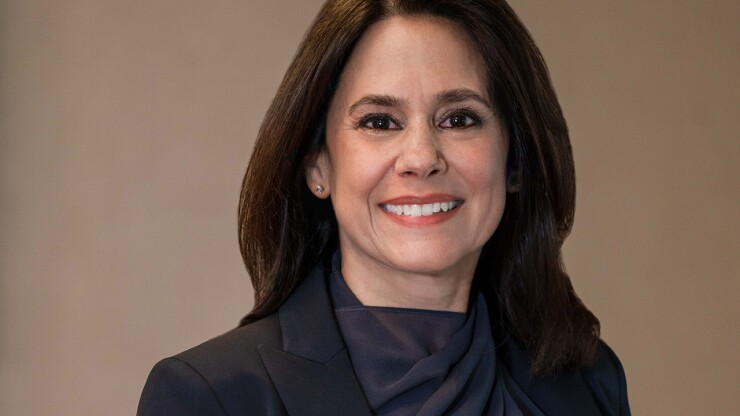Federal Reserve Bank of Dallas President Lorie Logan said the case for
"After
Logan, who votes on this year's policy-setting Federal Open Market Committee, said she's keeping an open mind ahead of the June 13-14 meeting, but expressed disappointment in the lack of progress in inflation. Prices, especially when volatile food and energy categories are stripped out, haven't fallen fast enough, and a still-tight labor market continues to pressure wages.

Traders amped up bets on a June rate increase to about 40% after her remarks were published. S&P 500 contracts shifted lower, following Wednesday's rebound. Two-year yields topped 4.2%, rising to the highest since April.
Separately, Jefferson, speaking in Washington on Thursday morning, suggested he is willing to be patient to see how an aggressive rise in interest rates over the past year filters through the economy. He cited the delayed effects of policy and uncertainty around tighter lending standards.
"History shows that monetary policy works with long and variable lags, and that a year is not a long enough period for demand to feel the full effect of higher interest rates," Jefferson told the National Association of Insurance Commissioners in Washington.
He has been nominated by President Joe Biden to be Fed vice chair and is awaiting Senate confirmation.
The Fed has raised rates aggressively, including four jumbo-sized 75-basis point hikes, lifting borrowing costs 5 percentage points in little more than a year.
Chair Jerome Powell and some of other policymakers have indicated that, depending on what data show in the intermeeting period, it may be appropriate to pause increases at the meeting next month. Powell will speak on Friday at a Fed conference in Washington.
A pullback in bank lending, which intensified following the collapse of several institutions in the past few months, is amplifying tightness in financial conditions, and may be doing some of the Fed's work for it, some officials argue.
But Logan said tighter credit conditions are not a surprise and the trend has been in place since late last year.
"Even now, they say the main reason for the latest tightening is restrictive monetary policy, not stress in the banking system," Logan said.
The Dallas Fed chief earlier this week said she supported the Fed moving more slowly going forward but has also signaled that a pause may not preclude additional rate increases at subsequent meetings if necessary.





